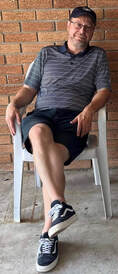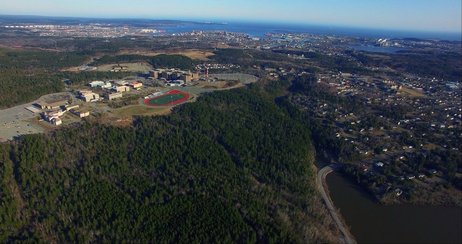WELCOME TO THE MADSAM STURGEON ECO-PHYSIOLOGY LAB
The MADSAM Sturgeon Eco-physiology Laboratory (UNB Saint John) involves researchers who share a common interest in understanding the biology, behaviour and physiology of east-coast sturgeon species. Since 1998, our lab has been working on Shortnose and Atlantic Sturgeon research projects that have focused on swimming metabolism as well as salinity, temperature and hypoxia tolerance. Our overall goal is to understand energy expenditure and metabolic needs for these species in dynamic environments.
The MADSAM Sturgeon Eco-physiology Laboratory (UNB Saint John) involves researchers who share a common interest in understanding the biology, behaviour and physiology of east-coast sturgeon species. Since 1998, our lab has been working on Shortnose and Atlantic Sturgeon research projects that have focused on swimming metabolism as well as salinity, temperature and hypoxia tolerance. Our overall goal is to understand energy expenditure and metabolic needs for these species in dynamic environments.

Dr. Jim Kieffer joined the University of New Brunswick in 1996 . Prior to his arrival at UNB, Kieffer was a research post-doctoral fellow at McMaster University (Chris Wood), where he worked on metabolic fuel use patterns in rainbow trout and tilapia. Kieffer obtained his undergraduate at U of Ottawa, and Master’s and Ph.D. degrees at Queen’s University (Canada). His Ph.D. focused on the effects of body size and temperature on the physiological response to exhaustive exercise in trout and bass. Kieffer’s work also focused on the biological effects of catch and release angling. This work has taken him to Atlantic Canada, and to lakes within Ontario and Quebec. His current research is largely devoted to Shortnose and Atlantic sturgeons. He and his students work on aspects of thermal and salinity tolerance, exercise, metabolism and stress (mainly) in sturgeon. Kieffer has published extensively on the effects of temperature on physiology and swimming in sturgeon. He and his collaborators have given over 140 presentations at conferences around the world on topics related to temperature, exercise, and metabolism in fish. He has served as a regular peer reviewer for several journals, Fish Biology, Journal Applied Ichthyology,Comparative Biochemistry and Physiology, JEB and Canadian Journal of Zoology.
His research is funded by NSERC, NBIF and UNB.
His research is funded by NSERC, NBIF and UNB.
|
|
Contact us:
|

